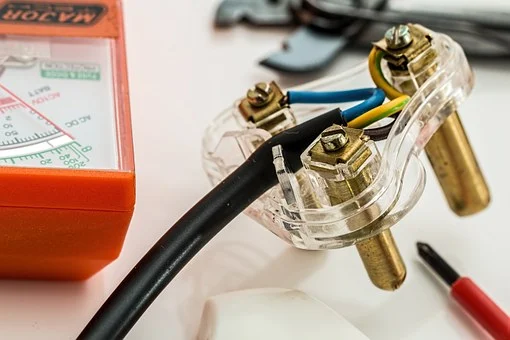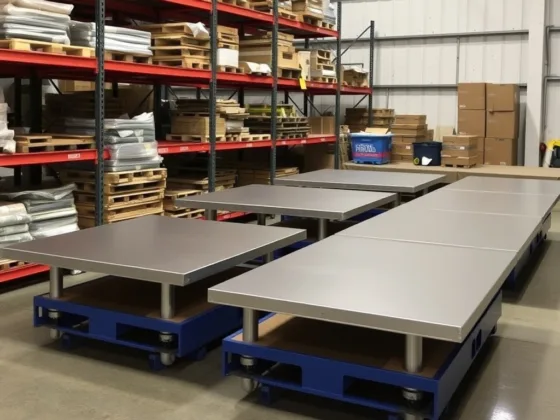Table of Contents Show
One of the most underrated components in electrical manufacturing processes is the wiring harness. Without high-quality wiring harnesses and cables, no electrical or electronic system will be able to perform.
They serve as an electrical system’s circulatory and nervous system, delivering energies, transmitting commands, and regulating instructions – tasks that are vital for the health and status of all electronic systems.

That’s why it’s vital for every soldering professional, electronic assembly expert, engineering supervisor, and basically, anyone involved in the electronics manufacturing industry to understand how these components function and how they’re used across the industry.
What is IPC 620?
The first major step to understanding these components is understanding the standard called ‘IPC-WHMA-A-620’. Commonly referred to as ‘IPC 620,’ this document was developed by the IPC (Association Connecting Electronics Industries) in partnership with the Wire Harness Manufacturers Association (WHMA).
First released in January 2002, the IPC-WHMA-A-620 is still the only standard that’s unanimously followed by all members of the electronics manufacturing industry when it comes to assembling custom cables or wire harnessing.
Since its debut in 2002, IPC-WHMA-A-620 has gone through various revisions. Understanding the differences between all the revisions is vital for all industry professionals.
But, it can be challenging to understand the complicated concepts and terminologies used in this standard.
That’s why there are training programs dedicated to teaching professionals about the IPC-WHMA-A-620 standard.
Once professionals receive this training, they become certified. More importantly, upon receiving training from IPC-certified instructors, the professionals get to use and install cable and wire harness assemblies.
This first-hand experience is vital for candidates to develop correct skills in determining acceptable/unacceptable wire harness assemblies as per the IPC 620 standard.
For very little IPC 620 certification cost, professionals get to acquire these skills –
- The ability to clarify terms and definitions associated with cable and wire harness manufacturing.
- Understand what quality standards need to be met when manufacturing cables.
- Reject cable or wire harness products that don’t meet acceptable standards of quality.
- Freely communicate and collaborate with other certified professionals who have also received this certification.
Once professionals receive their IPC-WHMA-A-620 certification, they can also apply for CIT certification programs. By bypassing those programs, they can become certified IPC trainers.
An IPC-certified trainer is authorized to certify other professionals. A professional with these qualifications can also apply for job positions like quality supervisors in cable and wire harness manufacturing companies.
Who Is this Certification For?
The IPC-WHMA-A-620 certification program was originally designed for professionals involved in the manufacture of cable and wire harness assemblies.
But, any industry professional (with 5th-grade-level reading and writing skills) who wishes to learn more about how cable and wire harness assemblies are produced and maintained can sign up for these training and certification programs.
A basic understanding of topics like Electrical Over-Stress (EOS) or Electro-Static Discharge (ESD) also helps students applying for the IPC 620 training and certification program.
Why Manufacturing Companies Want Their Professionals to Receive the IPC-WHMA-A-620 certification
The international automotive wiring harness market is expected to be valued at over $55.4 billion by 2027. If just one sector of the wiring harness market can grow so much in the coming few years, imagine the potential for growth in the rest of the market!
There’s a massive demand for professionals with the IPC-WHMA-A-620 certification. Here are the reasons why
Making Statements in the Market
Employing professionals who’ve received their IPC-WHMA-A-620 certification is proof of a manufacturing company’s willingness to invest in quality.
Since these certified production employees know precisely what’s acceptable and not, they’re able to eliminate the risks of producing low-quality products or expensive reworks.
Partnering with Other OEMs and Wire Harness Manufacturers
The IPC-WHMA-A-620 standard is followed by harness manufacturing companies and OEMs from over forty countries.
The training materials are made available in twelve different languages. This inherent universality of the IPC-WHMA-A-620 standard makes it easier for OEMs and wire harness manufacturers to collaborate.
Since both manufacturing teams are on the same page about the quality of products, they’re able to communicate and collaborate competently, even if the project in hand involves complicated build specifications.
A Sign of Compliance
IPC-WHMA-A-620 certification programs are accepted by the International Organization for Standardization (ISO). Countless other certification bodies overlooking electronics manufacturing processes also recognize the IPC-WHMA-A-620 standards.
Companies that either hire IPC-WHMA-A-620-certified professionals or make provisions for their existing employees to receive the certification are viewed in a good light by all of these quality-supervision organizations.
A company that employs IPC-WHMA-A-620-certified professionals is far likelier to excel in terms of producing innovative and high-quality electrical components.
Client Satisfaction
Whether you’re a business buying large numbers of cables or an OEM partnering with a wire harness manufacturing company – you’ll be extremely assured after knowing that your partner is IPC-WHMA-A-620-certified.
This applies to certifications for all IPC standards – they’re proofs of quality!









